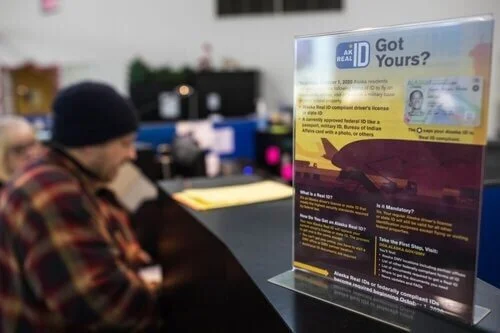Your car title is an important legal document that establishes ownership over your vehicle, but it can also be a source of problems if it isn’t handled correctly.
Our team has gathered this list of ten title tips based on our decades of experience as title experts. Follow these tips and you will avoid all but the most obscure car title problems!
1. Get a Title Whenever You Buy a Vehicle
We can’t stress enough how important it is to buy a car that has a title. If you don’t receive one, you’ll have to jump through a lot of hoops to get one. Until then, there’s no guarantee that the car is legally yours.
Before you turn over the money, make sure you look at the title. If they don’t have it, it’s possible the seller has a loan on the vehicle which hasn’t been paid off yet.
If you need to pursue getting a new title, you’re in luck – that’s our specialty here at Dirt Legal.
2. Sign and Date the Title Immediately
If you buy a car with the purpose of reselling it, you might be tempted to forgo signing or dating the title in the interim. This is called title jumping and it’s dangerous and illegal. Many states will fine you or imprison you for this activity. It’s just not worth it, and it’s the quickest way to land yourself in a heap of car title trouble.
And if you are handed a title that wasn’t signed or dated, you could owe excessive taxes based on the time period when the title was improperly assigned. It’s best to avoid those sorts of titles altogether.
3. Don’t Lie about the Selling Price
When you list the selling price on the title and bill of sale, don’t lie. You may want to save on taxes and fees, but it’s a felony to provide a false selling price on either of these documents. We don’t think that saving a few bucks is worth time in the slammer.
4. Sell the Car, Keep the Plates
It might be easier to leave the plates on a car you sell but doing so could cost you. Imagine what might happen if that car got a ticket down the road with someone else behind the wheel. That’s right: you would be liable for the fine.
Make sure you remove your car’s license plates at the time of sale. In some situations, you can put them on your next vehicle and save yourself some money. Furthermore, it will motivate the new owner to get a fresh registration right away.
5. Complete a Release of Liability Form
After you sell a car, most states require that you file a Release of Liability within a few days. Some states even have this slip appended to the bottom of the title.
A Release of Liability protects you from any injury, property damage, or lawsuits resulting from the new owner’s use of the vehicle you sold them. If they were to get pulled over or commit a crime before transferring the title into their name, you will not be liable. It also helps to protect you from impounding, parking tickets or any other liability which would formerly have been yours to bear.
With an ROL, you aren’t subject to waiting for the new owner to title the vehicle; you’ve already made it clear to the state that the car is no longer yours, giving you an extra layer of legal protection against car title trouble. Complete this form before heading to the DMV.
6. Take Proper ID to the DMV
Though it isn’t a title problem per se, this has earned its own spot on our list because of the surprising number of people it causes problems for.
After waiting forever in your local DMV office, the last thing you want to find out is that you don’t have the right ID. Check online before you go and find out what’s required of you. It’s guaranteed that you’ll need your driver’s license, but sometimes they want you to prove residency as well. That’s why it’s helpful to keep a copy of a utility bill or similar mail with you when you go.
If a second person’s name appears on the title, you will want to take them along as well with proper identification. Some states allow you to provide their information without them in attendance, especially in the case of a Transfer on Death, but not all states do. Check your local guidelines first.
7. Update Your Address
Is the address listed on your title the one you currently live at? If you move, it’s vital that you report your new address to your state’s DMV. Many states have laws regarding the time frame you have to do this, so be sure to figure out what that timeframe is. You may also need proof of your new address.
You will likely have to pay some fees when changing the address on a car title, but it’s important that you keep this information up-to-date. Without your proper address on file at your DMV, you won’t receive important notices like registration renewal requests or recall updates about your car.
In most states you can update your address with the DMV while you are there.
8. If a Duplicate Title Has Been Issued, Use It
Remember our horror story about buying a car without a title? Had I known there was a duplicate title out there, I would have saved myself a lot of trouble.
Any time an original title is illegible, destroyed or lost, it becomes void. Then, a duplicate title is issued. If you end up finding the original after the duplicate has been issued, you MUST destroy it. Don’t try to use it or you will cause a lot of title trouble for yourself.
9. Get Your Ducks in a Row: Bring the Right Paperwork
This may include a lien release, power of attorney paperwork, probate court documents, or an inheritance affidavit. Especially if you plan to sign a title for someone else, you better have the right paperwork that authorizes you to do so.
If you don’t submit a certified or verified copy of the required documents, you can assume the title will not be processed. Save yourself some time and make sure everything is in order before attempting to get the title signed over.
Use your state’s online DMV resources or call them directly to make sure you’re not the person standing in line at the DMV only to get turned away after asking a hundred questions. We have all seen that person.
10. Sign All Documents Ahead of Time
How many times have you submitted paperwork or a check and forgotten to sign it? It happens to the best of us, but the DMV will usually toss out paperwork instead of asking you to correct it – and they rarely even tell you they’ve done that.
Before you attempt to transfer a car title, you’ll want to make sure that your signatures are in the right places. If you attempt to turn in a title that wasn’t properly signed, you might find yourself in a jam. You only want to sign the title in blue or black ink and make sure the signature matches exactly what’s on your documentation.
If you’ve recently gotten married, double check that you used your most recent legal name.
Use These Title Tips to Save Time and Money
Some of these title tips might seem like common sense, but it’s vital to follow them anytime you are dealing with buying, selling, or transferring a car title. The smallest mistakes often lead to hassles you don’t want to deal with.
At Dirt Legal, we are equipped with the tools to handle any title issue, but we would rather know that you don’t need our services for things you can do yourself. Take your time to ensure all your i’s are dotted and your t’s are crossed to avoid headaches in the future.
Skip the Hassle, Skip the Line
If you would prefer to skip the hassle and save time, let us do the work for you. We can obtain a new title and registration for cars, motorcycles, and almost anything with wheels. We also offer VIN Checks to help you gather the facts before buying a new car. Click the links to learn more about our services.
We are not attorneys. This article is not legal advice. Cover image source

























Transferring a car title without signing it, otherwise known as floating a title, is actually a criminal offense called title jumping.